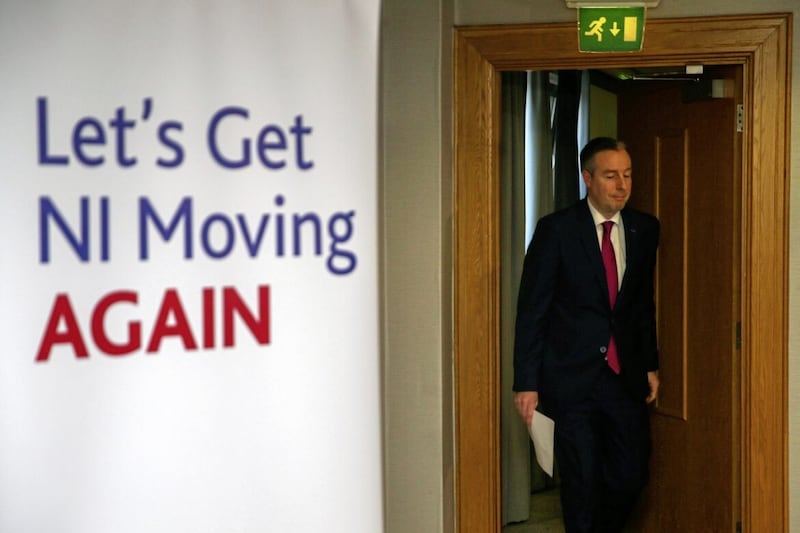There can be no doubt that unionism has missed the strategic skills of Peter Robinson since, after suffering a period of ill health, he retired as first minister and DUP leader just over five years ago.
The pragmatic relationship he developed with the late Martin McGuinness provided the Stormont institutions with solid foundations and it is widely believed that devolution would never have been suspended for three years from 2017 onwards if Mr Robinson had still been in office.
He has subsequently offered some trenchant political assessments which have generated important debates and he remains by any standards a serious figure.
However, he is still capable of making interventions which, on the basis of his own well documented record, can be regarded as deeply contradictory.
In his News Letter column last Friday, Mr Robinson said he could `` think of no period over my 50 years in politics where unionists have felt more alienated than they are now" and went on to suggest that they were ``perilously close'' to rejecting the political process.
Mr Robinson's involvement with the DUP predates 1974, when the party supported a major campaign of orchestrated intimidation which brought down a power-sharing administration including the SDLP but with no Sinn Féin involvement.
He later played a central role in opposing the Hillsborough accord of 1985, ranging from organising mass rallies in Belfast and elsewhere to his participation in the notorious invasion of Clontibret in Co Monaghan which resulted in his criminal conviction for unlawful assembly.
Mr Robinson went on to denounce the 1998 Good Friday Agreement as ``a wretched failure'', and spearheaded the successful attempt to end David Trimble's career, only to ultimately replace him as a first minister in full partnership with Sinn Féin rather than the SDLP.
It needs to be acknowledged that Mr Robinson was among many senior politicians on all sides who performed spectacular u-turns over the last quarter of a century, but, with his history, it is hard to believe he is effectively suggesting that unionist frustration has suddenly reached unprecedented levels.
As we enter a defining stage brought about by the DUP-endorsed Brexit debacle, nationalists, unionists and the unaligned have a responsibility to carefully assess the constitutional options which are on the table. Mr Robinson must surely be aware that any group which walks out on the discussions will be making a tactical error of enormous proportions.







